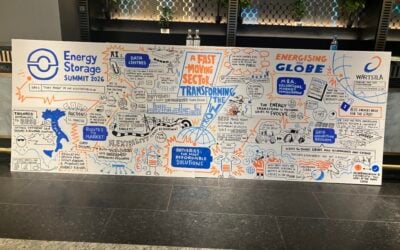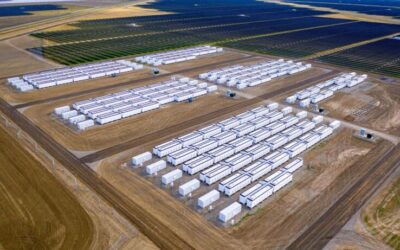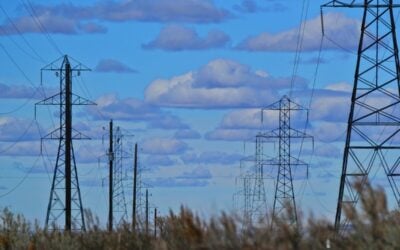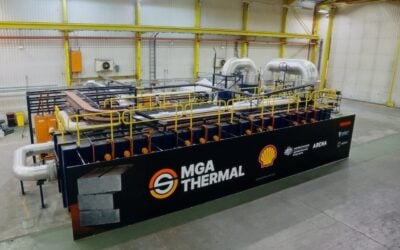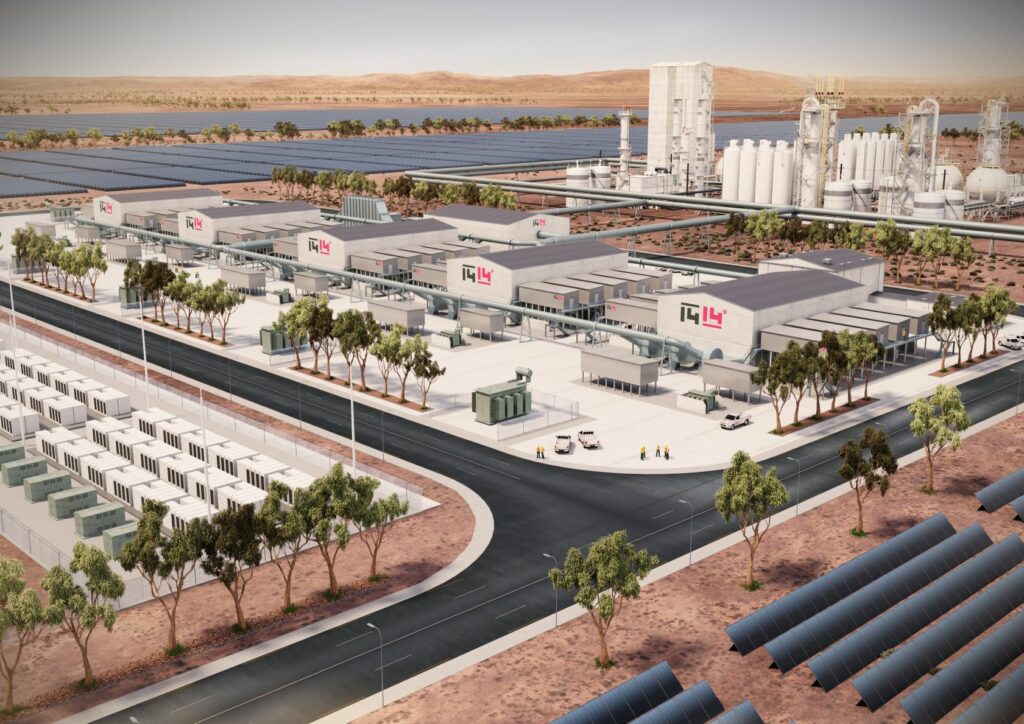
A novel project in development in Australia combining concentrating solar power (CSP), molten silicon thermal storage, solar PV and a grid-scale battery system appears to be revived by a new joint venture (JV).
Called Aurora, the project in South Australia was being developed by 1414 Degrees (14D), a technology company which has developed and patented the molten silicon thermal energy storage system (TESS) that would be used at the site. The name 1414 Degrees in fact refers to the melting point of silicon used in its systems.
The Australian company owned all rights to the site and development. However, the project hit the buffers as reported by Energy-Storage.news in April when Jemena Group, an energy infrastructure company co-owned by State Grid Corporation of China and Singapore Power decided to withdraw interest in investing in it.
CSP and solar thermal company Vast Solar said this week that it has stepped in to form a JV with 14D. This follows an agreement for concessional finance worth A$110 million (US$76.78 million) being made with the Australian government for development of a 20MW CSP plant in the Port Augusta region where Aurora will be built.
Try Premium for just $1
- Full premium access for the first month at only $1
- Converts to an annual rate after 30 days unless cancelled
- Cancel anytime during the trial period
Premium Benefits
- Expert industry analysis and interviews
- Digital access to PV Tech Power journal
- Exclusive event discounts
Or get the full Premium subscription right away
Or continue reading this article for free
The JV will co-develop the site’s battery energy storage system (BESS), which has a planned output of 140MW and between one- and two-hours’ storage duration (140MWh to 280MWh).
The project also has development approval from South Australia’s state government to include a 70MW solar PV array as well as connection to adjacent 275kV transmission lines.
Vast Solar will also have access to the site to develop its CSP project, which the company claimed will be able to produce dispatchable electricity available for eight hours or more and could lead to export opportunities and job creation around the technology.
“As per recent comments from the Federal Energy Minister and AEMO, dispatchable renewable energy capacity is what is required to curb the high prices currently being experienced in Australian energy markets,” Vast Solar CEO Craig Wood said.
“We are excited to be working with the Federal Government and ARENA to finalise funding for the project, and with State and Local Governments and other partners to expedite the Aurora project.”
ASX-listed 14D said in a regulatory filing that it has sold a 50% stake in its development subsidiary, Silicon Aurora, to Vast Solar, at a purchase price of A$2.5 million, payable in two instalments.
Development of the BESS will be Stage 1 of the project and the companies are sharing the expected A$1.8 million development costs equally.
A final investment decision on Stage 1 is expected to be made early next year, 14D said, while the JV agreement gives the company the right to independently progress a pilot of its thermal energy storage system tech at the site.
“We are now in an excellent position to continue with the development of the Aurora project,” 14D chairman Tony Sacre said.
Also in South Australia, solar developer Photon Energy has secured a 1,200 hectare site on which it aims to deploy a technology which apparently combines various aspects of CSP and solar PV with a novel long-duration energy storage technology called ‘thermal hydro’.
The solution, dubbed ‘PV Ultra’ by RayGen, the Australian company which created it, generates both electricity and heat using PV modules and angled mirror towers (heliostats) to generate CSP. Energy generated is stored in water tanks of differing temperatures, with the temperature difference used to drive an engine to deliver power when needed.
Photon Energy has claimed the PV Ultra plant could store and discharge energy for anything between 17 and 24 hours.


